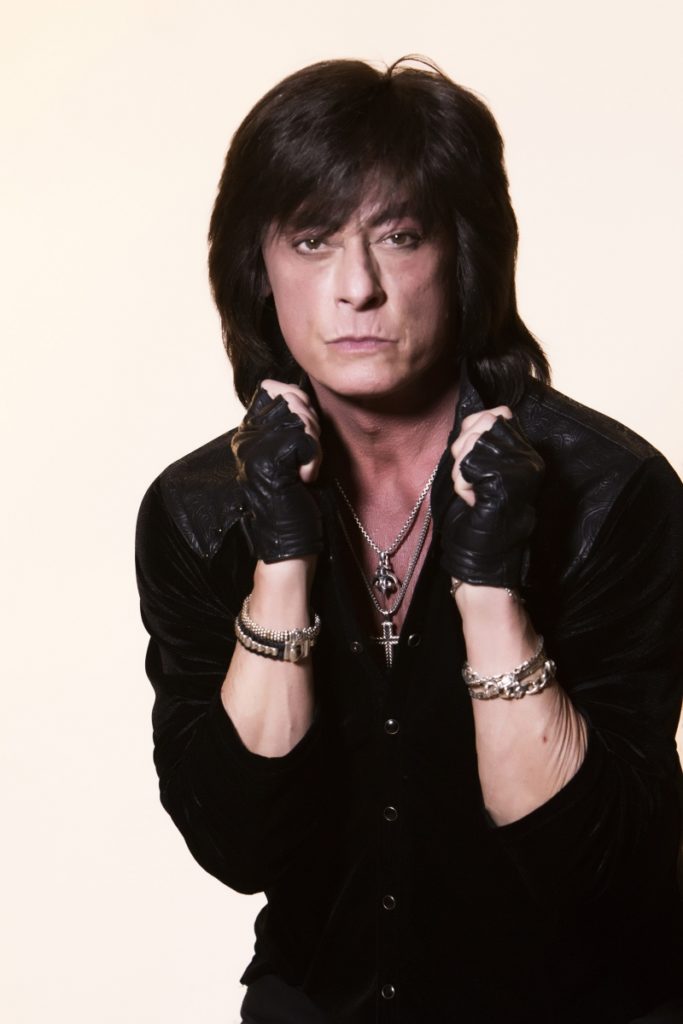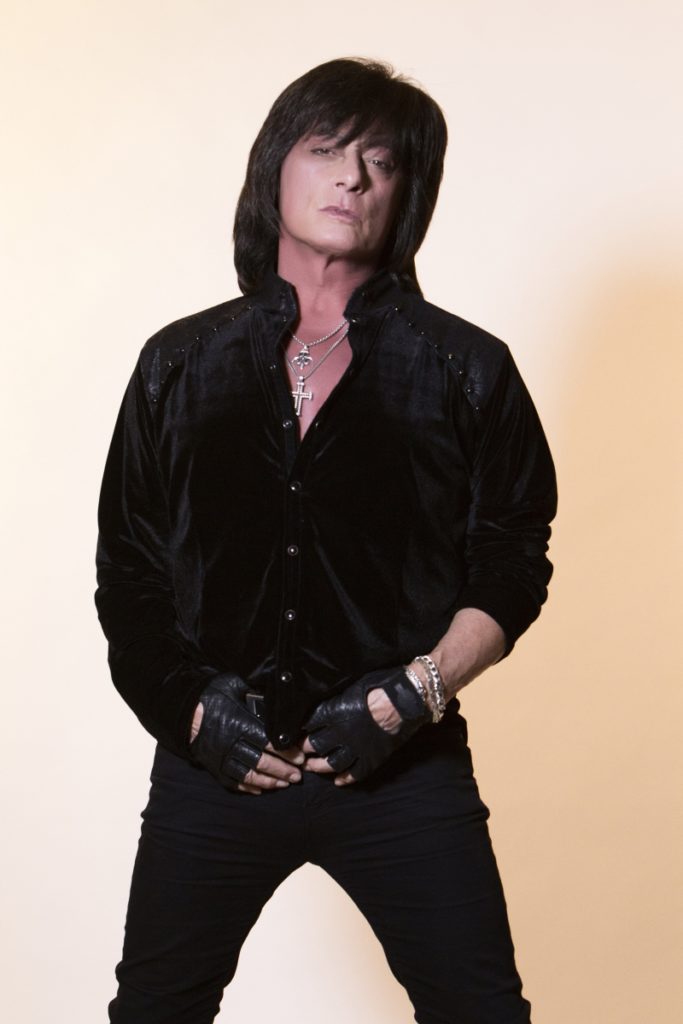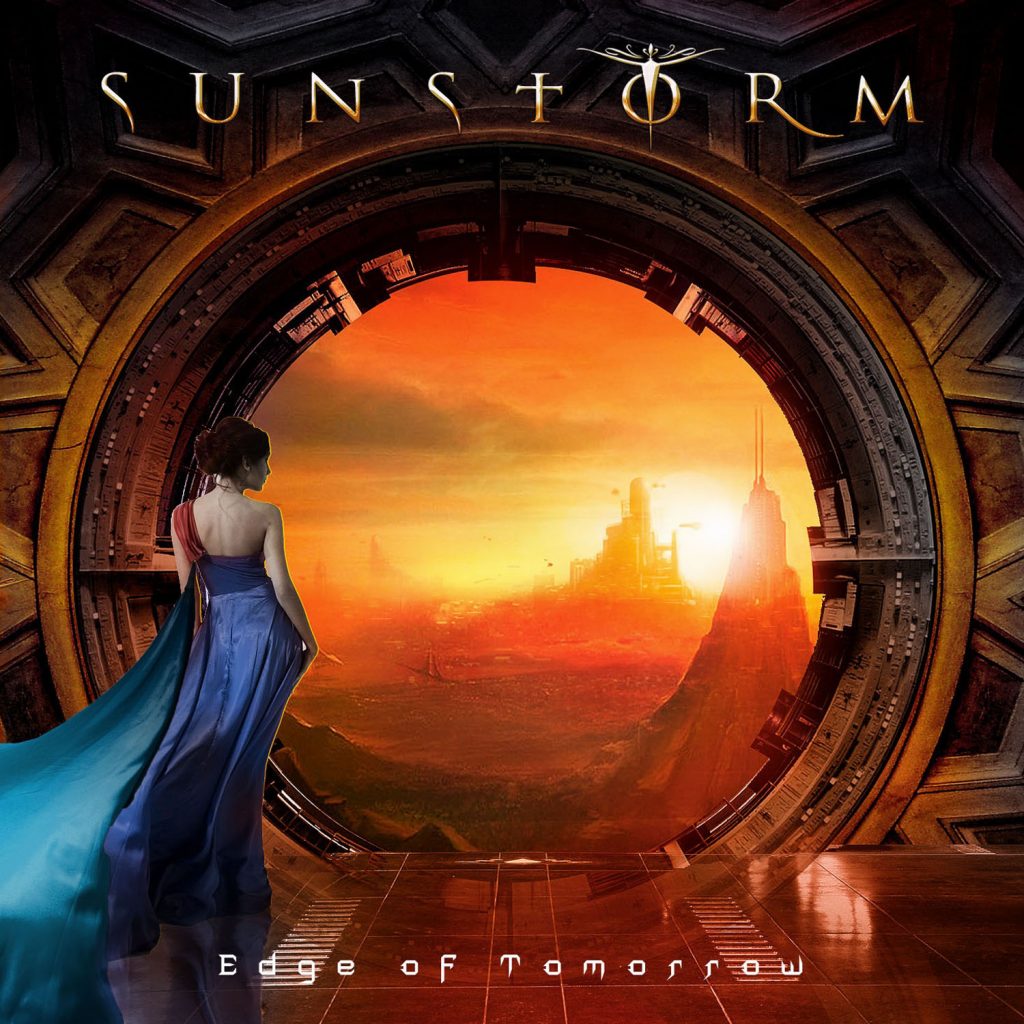
Already considered to be one of the best vocalists in rock music for the past three decades, Joe Lynn Turner may also be one of the most prolific singers and songwriters in all of rock music.
Best known for his tour of duty with the most commercially successful incarnation of Ritchie Blackmore’s post-Deep Purple band Rainbow, as well as for a short stint as the vocalist for Deep Purple itself, Turner’s discography is both extensive and diverse, running the gamut of rock genres. He has released 15 solo albums, and has collaborated with the likes of Yngwie Malmsteen on three albums, Glenn Hughes (Deep Purple, Black Country Communion), and more recently in the Rated X supergroup with Carmine Appice (Vanilla Fudge, Ozzy Osbourne, Blue Murder), Tony Franklin (The Firm, Blue Murder) and guitar whiz Karl Cochran, which released an album in 2015.
He has also co-written or sung on hundreds of tracks for the likes of Michael Bolton, Cher, Michael Schenker, Billy Joel, and numerous European artists. He even collaborated with Canadian rocker Lee Aaron on her song Powerline back in the late 1980s.
Along the way, he also created the Sunstorm project in 2006 in collaboration with Frontiers Music president Serafino Perugino. The self-titled debut that year saw Turner reimagine some previously unreleased melodic rock tunes that he had penned throughout the 1980s and 1990s, with the aid of long-time Survivor member Jim Peterik. A second Sunstorm album, House of Dreams came out in 2009 and both albums earned popular and critical acclaim.
Finally, a third Sunstorm album has been unveiled, as Edge of Tomorrow was released worldwide by Frontiers on May 13.
“Sunstorm was supposed to be a trilogy. But then the idea came about to do another album that was harder, heavier. The songs [Frontiers staff songwriter/producer] Alessandro Del Vecchio sent were also very strong and I was assured, this time, that I had total control over which songs would be included. I had not had that total control on previous Sunstorm CDs,” said Turner about one of the main reasons why it’s taken seven years for a new Sunstorm album, adding that he is grateful for Frontiers being such enthusiastic backers of the project, and his music in general.
“The first Sunstorm album came out around 2006 when I followed Frontiers president Serafino Perugino’s suggestion to blow the dust off from some potential AOR hit songs that I wrote for the follow-up to my 1985 solo debut, Rescue You, which never came out. It turned out to be one of the most successful melodic rock releases of the year. So basically, the entire project was spearheaded by Frontiers.”
Besides Turner on vocals, Del Vecchio played all keyboards, did backing vocals and produced the album. Simone Mularoni was the guitarist, Nik Mazzucconi played bass, while Francesco Jovino was on drums.
“We sent files back and forth. I recorded my parts in the USA. The producer, Alessandro, was willing to take direction and ideas from me. I was sent skeletons of songs, as I call them. I would change some melodies and some lyrics but not enough that I felt I deserved to get a writing credit,” Turner said of the recording process.
The songs on the album have a definite edge and aggressiveness when compared to the first two Sunstorm albums, but the release of the single Don’t Walk Away from A Goodbye show Turner and Sunstorm can still offer up melodic rock at its finest.
As he stated in the promo material for the album: “This new Sunstorm album is the best of the series. We went harder, stronger and heavier than ever before without losing the integrity of what the project is about. I call it melodic metal. The songs are very well crafted, the messages are profound, the performances are amazing and the sound is incredible. All involved can be very proud of such great music.”
He also talked about what differentiates Sunstorm from some of his other work over the years in his conversation with Music Life Magazine.
“If you look at all four of the CDs that have come out [the three Sunstorm albums as well as Rated X, which was also released through Frontiers] most tracks were written by other people. With my solo CDs, most songs are written, at least in part, by me. The first two Sunstorm CDs were more melodic and less bluesy that tracks on my solo CDs. This one is heavier and has a more modern sound with less 1980s gloss. Yet it’s melodic enough for a Sunstorm release,” Turner said.
While he still lives primarily in New Jersey, for the better part of the last two decades Turner’s career has been thriving outside of the confines of North America.
He started his career in the USA with an R&B, pop, jazz, roots-infused group called Fandango that had a modicum of national success over its four albums, and toured with the likes of The Beach Boys, Billy Joel, The Allman Brothers and The Marshall Tucker Band before breaking up by 1980. Not off the market for long, Turner was recruited by Blackmore for his latest version of Rainbow.
They band was coming off the heels of a huge commercial success with the 1980 album Down to Earth and the hit single Since You’ve Been Gone, featuring vocalist Graham Bonnett, who had stepped in to replace the legendary Ronnie James Dio, who became a superstar over the first four Rainbow albums. With Bonnett, Blackmore had turned Rainbow into a more straightforward melodic hard rock band, a trend that continued over the next three albums with Turner at the microphone.
Rainbow disbanded when the highly successful Mark II lineup of Deep Purple reunited, and Turner began his solo career as well as being widely in demand as a guest or back-up vocalist.
When the festering and long-standing enmity between Blackmore and Deep Purple vocalist Ian Gillan exploded to the surface again, Gillan was temporarily ousted and Turner brought in to contribute to the 1990 album Slaves and Masters. It performed relatively well commercially and the subsequent tour was a hit, but many of the most fervent fans derided the album, calling the project ‘Deep Rainbow.’
Turner soldiered on with solo projects as well as a stint in a band called Mother’s Army, which featured the previously mentioned Carmine Appice, Jeff Watson and former Ozzy Osbourne bassist Bob Daisley.
Most of these projects saw Turner touring Europe and the Far East, where he is now a household name. He said that many artists make the mistake of focussing their energies so much on the admittedly lucrative North American market, that they forget that there are literally billions of people living elsewhere who may also appreciate their music.
“There are cultural differences and media differences in those geographical areas that enable real, solid music to still be appreciated,” Turner said, adding that it’s why he is grateful for the work that Perugino and Frontiers does to promote artists such as himself.
“There is a lot of great music released by Frontiers. They have helped keep the genre of melodic rock alive.”
Turner has maintained regular, if scant, contact with the mercurial Blackmore over the years. He said he was not surprised that his former employer declined to attend this year’s Rock and Roll Hall of Fame induction ceremony alongside his former Deep Purple bandmates when they were finally inducted. Turner himself was not listed among the official band members to be inducted.
“I was humbled and touched by a recent Blackmore statement concerning my work with the band. His respectful and supportive comments of my efforts on the Slaves and Masters album were better than any award I could receive, especially from an organization that has ‘lost the point’ many years ago. Slaves and Masters is a great album and our collaborations have always been a mix of magical chemistry and artful integrity that will stand the test of time,” he said, adding that he is also thankful for all the opportunities he has had over the years to collaborate with so many other artists.
“I am humbled by that. I am proud of my diversity [as a vocalist], yes. I have been fortunate to have worked with a wide range of artists and also some great orchestras.”
His other recent project, Rated X, was successful on both the critical and commercial fronts. But its future is in some doubt. Part of the reason for this is because towards the end of the recording process for the band’s debut album, guitarist Karl Cochran suffered a serious health setback. But also the conflicting schedules of he, Appice and Franklin have made it hard to sustain any sort of momentum for the project.
“We were hoping it would be more of a band situation and have some longevity. However, it ended up being a learning experience in that we realized that we are all very much in-demand musicians being pulled in separate directions, even though we loved working together and made a great record,” Turner said.
“We have to pay our bills making music and are very fortunate to be able to do that. However, that means we cannot depend on one band to earn a living. All of us kept getting offers for various shows and other situations and we had to take those offers when they came in. We could not postpone those offers to wait to see if Rated X could get show booking offers. As for making another Rated X CD, I always say, ‘never say never.’”
Turner’s busy 2016 touring schedule sees him touring the United States, Bulgaria, Finland, Sweden and Norway, as well as a big festival in the UK before moving on to Spain. And he said more dates are being added all the time.
For more information on the Sunstorm project and the Edge of Tomorrow album, visit http://www.frontiers.it/album/5308 To keep tabs on Turner’s various endeavours, see http://www.joelynnturner.com.
* Jim Barber is a veteran award-winning journalist and author based in Napanee, ON, who has been writing about music and musicians for a quarter of a century. Besides his journalistic endeavours, he now works as a communications and marketing specialist. Contact him at jimbarberwritingservices@gmail.com.

